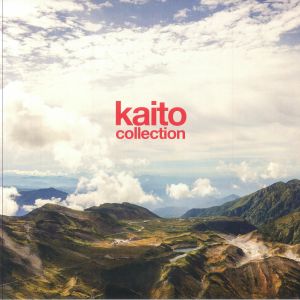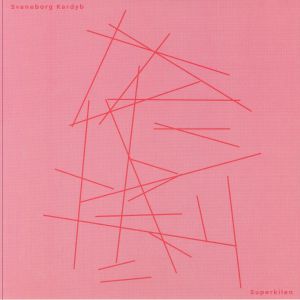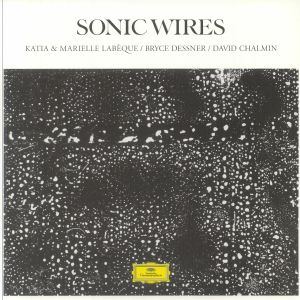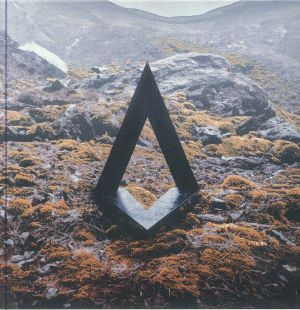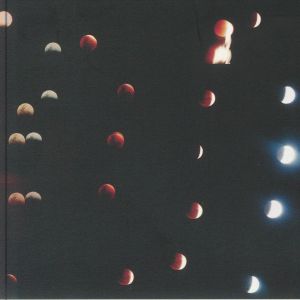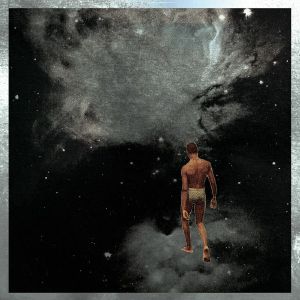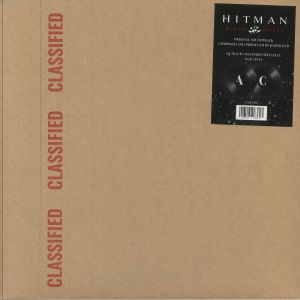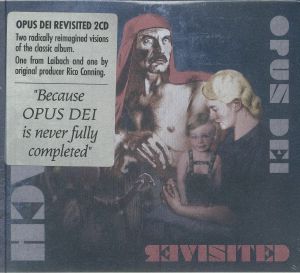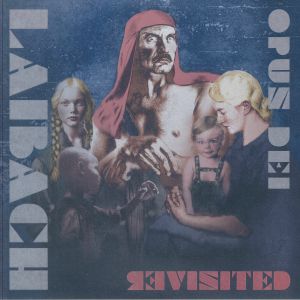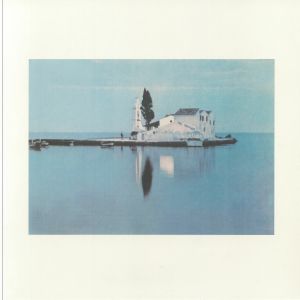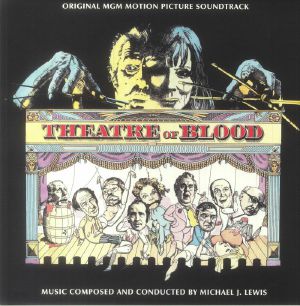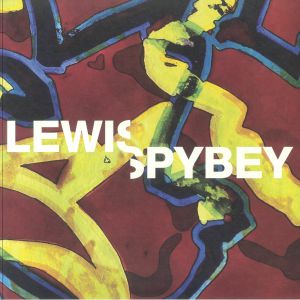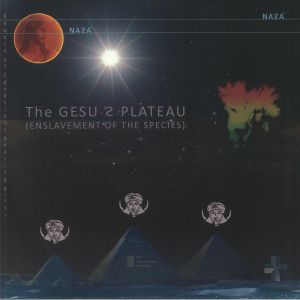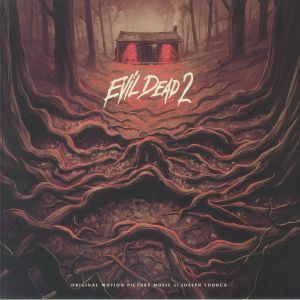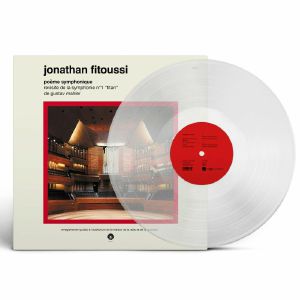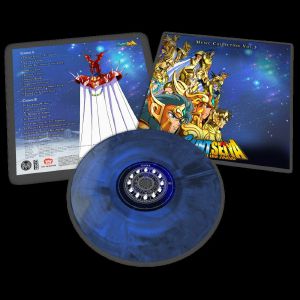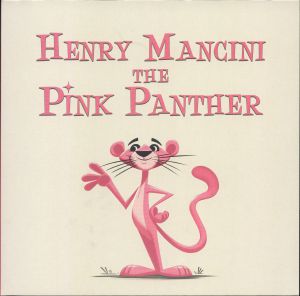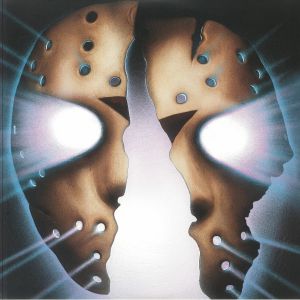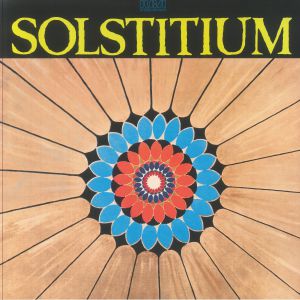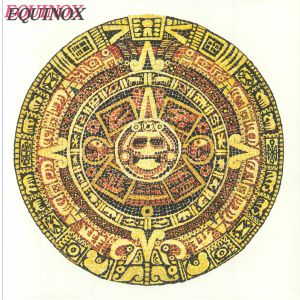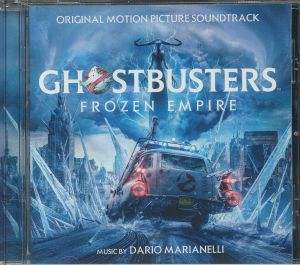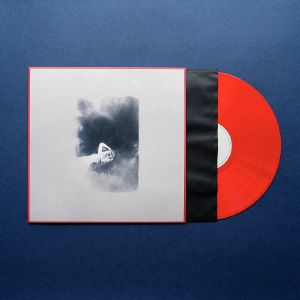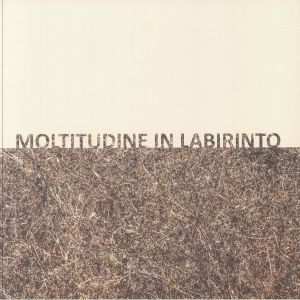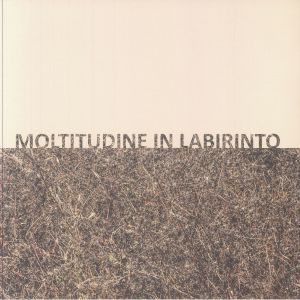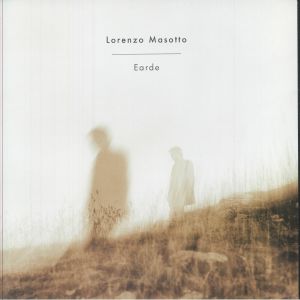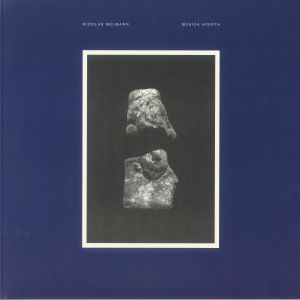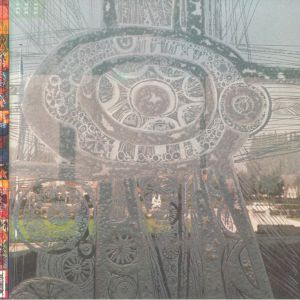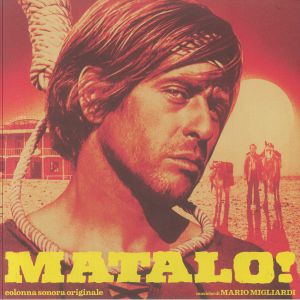Filter
Genre
Stock
Equipment
Release Date
Brand
Label
Release Title
Price
Tags
Back catalogue: Classical
Juno's full catalogue of Classical
Alben
Fiasko! (white vinyl LP + MP3 download code limited to 230 copies)
Cat: MIALP 059. Rel: 15 Jul 24
Review: Belgian artist Kaboom Karavan is back on Miasmah Recordings with Fiasko! which embodies musical chaos-ecstatic, fun, yet deeply melancholic. It's an overwhelming experience where every sense is touched and the whole thing has been crafted for an underground rebellion against societal norms that reconnects with the inner child of black tie workers. In essence, Fiasko! is contemporary exotica created by a madman with boundless creativity and was made using a plethora of homemade instruments, including acoustic guitars, electronics, vocals by Bram Bosteels and Bart Maris contributing trumpet, tuba, and trombone, while Stefaan Smagghe adds violin and sarangi. A kaleidoscopic delight for sure.
… Read more in stock $39.03
Pointed Frequencies (LP + insert)
Cat: DIALLP 48. Rel: 14 Nov 24
Review: Ben Kaczor and Niculin Barandun's debut album, Pointed Frequencies come on the tasteful German outlet Dial Records and explores the healing potential of sound through six immersive tracks. Their collaboration began in 2022 for an audiovisual show at Digital Art Festival Zurich and has developed masterfully since and as Kaczor studied sound therapy, Barandun became intrigued by its possibilities, and it is that which has inspired the album's direction. It incorporates therapeutic elements like binaural beats and solfeggio frequencies into a seamless blend of ambient and experimental music. Through free improvisation, the pair have cooked up some brilliantly contemplative pieces here.
… Read moreGespielt von: Joachim Spieth
in stock $20.48
Review: Parisian label InFine presents Collection, a stunning anthology of Kaito's ambient works, the project of Hiroshi Watanabe, a techno veteran with nearly three decades of experience. This album compiles remastered and re-edited tracks originally released between 2020 and 2022 on Watanabe's Cosmic Signatures imprint, offering a serene sonic journey for introspection and reflection. Collection shows off Kaito's ethereal soundscapes, blending layered drones, emotive synthetic strings, and analogue harmonies that ascend to euphoric heights. Pieces like 'Summer Mood' evoke a nostalgic beauty, blending piano-led melodies with a bittersweet sense of reminiscence. The track 'Birds of Passage' features delicate, treated textures, while 'Summer Sketch' nods to the warmth of Miles Davis' Sketches of Spain with its humanistic horns. The album's beat-driven tracks stand out, with 'Silent Cloud' echoing the vibes of Mo Wax and Massive Attack, and 'Silent Sky' delivering deep basslines and subtle details reminiscent of classic downtempo electronica. Masterfully remastered by Rashad Becker, Collection is a testament to Kaito's mastery of ambient music, blending minimalism with emotional depth. Hats off to InFine, for further solidifying his place among Japan's ambient music luminaries.
… Read moreGespielt von: Juno Recommends Ambient/Drone
in stock $15.78
Review: Following their latest maxi-EP for Infine, 'Silent Sky', Kaito (a beatsmith's production alias of a towering name, none other than Hiroshi Watanabe) returns for Collection, his newest album for Infine. Celebrated for his contributions to the "enviro-ambient" scene in his home Japan, Collection marks the latest reminiscence under Watanabe's Kaito pseudonym, which was started in 2001 after visit to Europe and subsequent release on the Kompakt label. With "Kaito" meaning both "universe" and "secret" depending on its usage, Collection is comprised of ambient, quiescent and melodic tunes which serve as individual therapies for the ear, despite their dual esoteric and cosmic quality.
… Read more in stock $30.17
Review: Percussionist and singer-songwriter Mami Kakudo returns with her latest album, Contact. A graduate of Tokyo University of the Arts' Department of Instrumental Music, Kakudo has gained recognition in Japan and internationally for her expressive use of marimba, percussion, voice and music boxes. Four years after her debut album, Oar (featuring covers of Maki Asakawa's 'My Friday' and Fishmans' 'Ikkareta Baby'), Contact showcases her signature sound again here in all its glory. Recorded with a talented ensemble-including Mugi Furukawa on guitar, Akita Goldman on bass, Wataru Mitsunaga on drums, and Yumiko Iwao on cello-Contact highlights Kakudo's ethereal voice, poetic lyrics and whimsical arrangements.
… Read more in stock $60.05
Band Of Brothers (Soundtrack) (limited numbered 180 gram audiophile white vinyl 2xLP + booklet)
Cat: MOVATM 079W. Rel: 15 Apr 25
Review: "We few, we happy few, we band of brothers..." So said Henry V before the battle of Agincourt in one of Shakespeare's many lauded histories. The quote went on to Christen Stephen Ambrose's 1993 novel and a subsequent American war drama miniseries of the same name, chronicling the journey of the "Easy Company," a group of American paratroopers during World War II. Training, combat tussles, and fraternal bonds are given a brutal portrayal in the film, and this mood of brutality and endurance was not unnoticeably underscored by Michael Kamen's soundtrack, now reissued on gatefold 2xLP. Kamen, known for his scores for Die Hard, X-Men and Memento, brought out a mood of orchestral fortuity, successfully mirroring the film's intent to portray themes of glory, tragedy and camaraderie, all of which ooze from its many orchestral swells and windfalls.
… Read more in stock $43.45
Warszawa (LP limited to 300 copies)
Cat: WRWTFWW 089. Rel: 04 Dec 24
Review: Polish producer, multi-faced musician and multi-instrumental maestro Albert Karch knows his way around the sound engineer's desk. So much his finesse is unmistakeable, with a number of standout records already behind him. For example, the 2019 stunner, Celestially Light, created in collaboration with Japanese folk singer and songwriter Ichiko Aoba, Here, he delivers another exceptional joint project, teaming up with Irish ambient icon Gareth Quinn Redmond, himself no stranger to the WRWTFWW label, for a sublime outing of precise strings and pianos. A slow, meandering journey into melodic immersion which captivates and lulls, it moves between moments of sparse quiet, electronic experimentation, and more complex and full sounding arrangements in a way that holds the attention until the very last. A thing of patient beauty that deserves to be in your shopping basket.
… Read more in stock $37.09
Review: Svaneborg Kardyb, the award-winning Danish duo of Nikolaj Svaneborg (keys) and Jonas Kardyb (drums), masterfully blend minimalism, jazz, and Scandinavian folk influences into a stunning album. Their forthcoming album, Superkilen, draws inspiration from the vibrant Superkilen Park in Copenhagen, a symbol of diversity and unity. Much like the park's transformation from wasteland to communal space, the duo's music evokes serenity amidst the chaotic backdrop of modern life. Following their acclaimed debut Over Tage, Superkilen continues their exploration of lush melodies, subtle electronic textures, and intricate rhythms, into a calm yet dynamic energy. The duo's compositions offer a fresh, Nordic take on jazz, drawing comparisons to artists like Nils Frahm and Esbjorn Svensson, while retaining their own distinct, organic interplay. While less psychedelic and more digitally nuanced than their American counterparts, such as the Benevento/Russo Duo, Svaneborg Kardyb's music remains engaging and playful, with an infectious groove. Their 2024 release is an authentic, refreshing listen, perfect for those seeking tranquility with an undercurrent of joy in an otherwise fast-paced world.
… Read moreGespielt von: Juno Recommends Broken Beat Nu Jazz, Charles Webster
in stock $28.23
Sonic Wires (gatefold 2xLP)
Cat: 487696 9. Rel: 21 Nov 24
Review: Formed in 2018, Dream House Quartet has been reshaping the boundaries between classical and contemporary music. The group consists of pianists Katia and Marielle Labeque, both renowned for their versatility across genres, along with Grammy-winning guitarist Bryce Dessner of The National and composer-producer David Chalmin on guitar. Their repertoire spans radical commissions and essential works from the past 50 years. After releasing their self-titled digital EP in 2023, the quartet now unveils their latest project, Sonic Wires, coinciding with a November 2024 tour. The album features pieces by Steve Reich, Philip Glass, Bryce Dessner, Sufjan Stevens and Anna Thorvaldsdottir.
… Read more in stock $39.29
Review: Dubio makes no secret of its intention, from the word go. The opening, titular track give us the lay of the land. A record inspired by the soundtrack to a puzzle game of the same name, there's a cyclical, perpetual kind of motion to everything here. Obviously, we know where the start of each piece is, and the conclusion. But the vibe isn't forward motion, nor backwards. Instead, there's a gradual meandering tempo, a loose, open-ended kind of aesthetic that invokes the old cliche - the journey, not the destination. And with that, you can't help but sense a little mystery here, too. Kettel isn't always known for this type of free spirited exploration, and yet here we are, and how we got here is part of what we're trying to figure out. Musically, that means warm pads and string refrains, twinkling chimes, plodding, almost unsteady percussion and a sense of wonder and perpetuity throughout.
… Read moreGespielt von: Alexis Le-Tan, Juno Recommends Ambient/Drone
in stock $31.55
When Can (limited orange marbled vinyl double 12" + 10")
Cat: LPS PS16. Rel: 05 Jun 24
Review: Reimer Eising, aka Kettel, and Lennard van der Last, aka Secede, had already been lifelong friends by the time they began working on When Can. The Dutch producers wanted to create a seamless listening experience that would unfold and develop as a film does, using cinematic-leaning sounds to achieve their big idea. The whole thing feels like a narrative, a beginning-middle-end, which is doubly impressive when you learn there was no grand plan to begin with. Just two pals exploring what might come next. Originally released in 2012 - hark!, those heady, innocent days - what's perhaps even more astounding than the picturesque, immersive soundscapes here, is the fact this is the first time When Can has made it onto vinyl. Having said that, 12 years ago was another time and place, not least in terms of music sales, so let's not dwell on what everyone was thinking by not bringing this out on wax sooner. Instead, savour every moment of the rich, dreamy electronica.
… Read moreGespielt von: Juno Recommends Downtempo
in stock $30.30
Review: As of now, Kiasmos - the duo of Olafur Arnalds and Janus Rasmussen - are superstars on the international progressive electronica circuit. It crept up on us that they've only released one other album to date, with the bulk of their output having been limited so far to EPs and singles. II is the follow-up to its apt nominal counterpart, Kiasmos (I), and yet this time hears the pair strike out against the stark piano and electropop influences for which they were initially celebrated. Another key difference is that while the first Kiasmos record was made in the space of two weeks - getting at the sense of effortlessness that might accompany the initial burst of inspiration felt by artists when they start a new alias - II was made over the course of ten years and charts a remarkably different approach to music production.
… Read more in stock $15.49
Review: Kiasmos, the dynamic duo of olafur Arnalds and Janus Rasmussen, returns with their long-awaited second album, II. This vinyl is a celebration of their evolution over a decade since their self-titled debut in 2014. Known for blending minimal techno with orchestral flourishes, Kiasmos has refined their sound, adding richer textures and a sense of place and space. II opens with Grown, setting a delicate atmospheric tone that showcases their matured sound design. Tracks like 'Dazed' highlight their innovative use of traditional Balinese percussion and field recordings, creating immersive auditory landscapes. The album seamlessly transitions from electronic to classical and rave, maintaining their signature style of whisper-quiet ambience evolving into explosive dance beats. Songs like 'Sailed' and 'Laced' exemplify their knack for blending intricate percussion with organic synths, resulting in tracks that are both effervescent and serene. olafur's cinematic influence and Janus's DJ experience shine through, pushing the boundaries of genre with frenetic broken beats and catchier melodies. The grand strings recorded with SinfoniaNord add a majestic layer to the complexities, making II a truly expansive work.
… Read more in stock $33.19
Bram Stoker's Dracula (Soundtrack) (reissue) (limited numbered 180 gram audiophile transluscent yellow vinyl LP)
Cat: MOVATM 284Y. Rel: 22 Oct 24
Review: In 1992, Francis Ford Coppola tapped Polish composer Wojciech Kilar to create the score for his adaptation of Dracula. Kilar, relatively unknown at the time, crafted a haunting and atmospheric composition that adds depth to the story of the infamous vampire. The score relies on low tones to evoke dread, as heard in the main title, 'Dracula: In the Beginning', where deep cello and bass strings set a sinister tone for Count Dracula's eerie castle. 'Vampire Hunters' builds a tense violin theme, punctuated by woodwinds and percussion, reflecting the determination of Van Helsing in his pursuit of the vampire. 'Ring of Fire' delivers a ferocious climax, blending demonic voices and chorale elements in a chilling fashion. The highlight of the score is its haunting minimalism. Kilar avoids conventional melodies, focusing instead on repetitive, unsettling arrangements that grow in intensity. Tracks like 'The Storm' showcase his mastery, shifting from delicate harp plucking to powerful brass and gothic organ swells. Kilar's score stands out for its unique use of instrumentation and atmosphere, making it a perfect complement to the gothic horror of the film. Now available on 180-gram yellow vinyl, this chilling composition is essential for fans of the legendary story.
… Read more in stock $32.65
Cat: JBH 108LP. Rel: 25 Feb 25
Review: A pioneering English drummer and composer, Basil Kurchin's career spanned from the 1940s through to the early 2000s. When he transitioned from big band drumming to scoring and composing films, he became newly credited for experimenting with tape and field recordings, baking the sounds of birds, animals, insects and children into his soundtracks. This retro-harking compilation of never-heard-before soundtrack cuts by the mad sonographer is not the first to reach its wanting hands into the plumbable depths of the Kirchin archives; not a composer for popular media, Kirchin's various scores include The Shuttered Room (1961), Assignment K (1968), and The Abominable Dr. Phibes (1971). The obscurity of each film alone would render the task of assigning context to each track difficult, if not also for the fact that Kirchin has now left us. However, speculations abound: Trunk Records maintain that the the music for The Mutations dates from 1974, and was the score to a bizarre Jack Cardiff film starring Donald Pleasence and Tom Baker. As for Journey Into The Unknown, this is a tape from the archive with "Journey Into The Unknown" written on it, and very little else. Dating from 1968, it is alleged to originate from a series of spooky British TV dramas with supernatural twists; a forerunner of Tales Of The Unexpected.
… Read more in stock $29.33
Review: Izumi Kobayashi's fourth ambient solo album, Ik I, was produced by German visionary Holger Hiller and is now getting a long-awaited reissue. Originally released in a rare Netherlands-only pressing after Kobayashi's move to the UK in 1989, this album captures her unique blend of ambient soundscapes with Hiller's innovative production techniques. It's a real hidden gem of atmospheric music and intriguing Eastern Melody, dainty string patterns and exotic percussive sounds that celebrate Kobayashi's groundbreaking work and are sure to connect with a whole new generation of fans.
… Read more in stock $42.89
Selene (CD)
Cat: TRR 428CD. Rel: 30 May 24
Review: Selene by Akira Kosemura & Lawrence English is a beautiful exploration of atmosphere and gravity, seamlessly weaving together expansive soundscapes with a grounding sense of stability. At its core, Selene is a contemplative journey that delves into the human desire for transcendence and new perspectives. Through its meditative compositions, the record captures the essence of celestial zones and the boundless visions they evoke. Drawing inspiration from various sources, including radio telecopy, filmic dreams, and fictional renderings, the album transcends traditional boundaries to create a rich tapestry of sound and emotion. As a collaborative effort, Selene builds upon a lineage of musical exploration, bridging past and future with its innovative approach to composition and production. Through its ethereal melodies and evocative atmospheres, the album embraces the beauty of the unknown.
… Read moreGespielt von: Juno Recommends Ambient/Drone
in stock $11.34
KRONOS QUARTET / VARIOUS
Outer Spaceways Incorporated : Kronos Quartet & Friends Meet Sun Ra ('starry night' black ice glittered vinyl 2xLP)
Cat: LPRH 04X. Rel: 05 Sep 24
Review: Outer Spaceways Incorporated: Kronos Quartet & Friends Meet Sun Ra is a tribute to the legendary Sun Ra, the fourth in a series inspired by his music and vision and bringing together an eclectic group of musicians, composers, producers, and emcees, all converging to honor the cosmic spirituality and innovative genius of Sun Ra. Harrington aimed to place Sun Ra alongside American music giants like Charles Ives and Duke Ellington. The project features a diverse lineup, including Jlin, Nicole Lizee, Zachary Watkins, Trey Spruance, Victoria Shen, and Jacob Garchik. The album's collaborative spirit is highlighted by contributions from Marshall Allen, Georgia Anne Muldrow, RP Boo, Armand Hammer, and 700 Bliss, among others. Harrington and his team sought to create a sonic landscape that reflects Sun Ra's world, blending genres and pushing the boundaries of music, much like Sun Ra himself did throughout his career. The result is a forward-thinking, cosmic journey that truly captures the expansive and boundary-defying essence of Sun Ra's work.
… Read moreGespielt von: Juno Recommends Jazz
in stock $44.55
Review: Isik Kural's Moon in Gemini is a captivating album that blends slow, evocative narratives with symbolic storytelling. While also combining environmental music with folk influences, Isik's vocals float over pastoral sounds, chamber instrumentation and archival recordings which trace a line back through his own diverse musical journey. The album's 14 tracks immerse you in a dreamy, liminal space - 'Moon in Gemini' for example reflects a multi-faceted and nostalgic exploration of Isik's past work by including recordings from Turkey, Miami, Helsinki, and Glasgow. Inspired by artists like Nina Simone and Aldous Harding, Isik experiments with new techniques of theirs to make this album a poetic, naturalistic experience with a portion of proceeds sent to benefit Mor cat? Women's Shelter Foundation.
… Read moreGespielt von: Juno Recommends Ambient/Drone
in stock $26.01
Hitman: Blood Money (Soundtrack) (2xLP (soundfiles not available))
Cat: LMLP 187. Rel: 14 Nov 24
Apocalypse
Secret Invasion
Before The Storm
47 Attacks
Hunter
Action In Paris
Amb Zone
Night Time In New Orleans
Vegas
Club Heaven
Invasion On The Mississippi River
Rocky Mountains
Day Light In New Orleans
Trouble In Vegas
Funeral
Main Title
Elevator Theme
Bloodmoney Trailer
Club Heaven
Review: Jesper Kyd may not be a 'household name', but once you've encountered the Danish composer and sound designer's work you're unlikely to forget who he is or what he is capable of. Largely self-taught, he began exploring composition at an early age, by 14 was composing on a Commodore 64 and then an Amiga, and later became a member of the audio-visual computer-based artist collective Silents DK, a demogroup. Soon after that, he was collaborating with the Crionics coders. Seemingly born into the world of video game development, but from a staunchly artistic perspective, to date he's created some of the most accomplished game scores we've encountered, and 2006's Hitman: Blood Money is among them. Recorded with the Budapest Symphony Orchestra, it's tense, building, grand and, even without the on-screen action, thoroughly captivating contemporary classical stuff.
… Read more in stock $52.85
Transnational (Revisited)
How The West Was Won (Revisited)
The Great Seal (Revisited)
Opus Dei (Revisited)
Opus Dei (remix)
Transnational (remix)
How The West Was Won (remix)
The Great Seal (remix)
Review: Laibach revisits two iconic tracks from their 1987 opus, bringing new intensity to 'Leben heiBt Leben' and 'Geburt einer Nation.' Originally reworked for live performances, these versions merge theatrical drama with sharper sonic edges. The second disc ventures further, with original producer Rico Conning layering remixes that strip back and reimagine the band's audacious sound. This project doesn't just reframe the past; it grapples with it, offering both a homage and a provocative challenge to how we hear Laibach today.
… Read more in stock $9.95
Review: Laibach and A/political present Alamut, a new, symphonic album inspired by Vladimir Bartol's 1938 novel of the same name. Recounting an 11th-century Persian tale - centered on the charismatic and enigmatic Hassan-i Sabbah, leader of the Nizari Ismailis and founder of the Order of Assassins - this is a shadowy, ninja-black-wax initiation into an esoteric order of spies. Laibach's work blends classical Persian poetry, minimalist orchestral textures, and industrial elements, reflecting both historical propaganda tactics and Bartol's critique of rising Fascism in 1930s Italy. Released on double vinyl and CD box set through Mute, the album was recorded in 2022 at a former Crusader castle in Ljubljana; it features the RTV Slovenia Symphony Orchestra, Tehran's Human-Voice Ensemble, the Gallina Women's Choir, and the women's accordion orchestra AccordiOna, conducted by Navid Goharib.
… Read more in stock $31.83
Review: Laibach has announced the release of Opus Dei Revisited, a newly reworked version of their seminal 1987 album. This project features two distinct versions of the original work. The first disc showcases a complete reimagining of the tracks, developed during the band's ongoing Opus Dei Revisited tour. The second disc includes fresh remixes by Rico Conning, who produced the original album, allowing him to reinterpret the source material while preserving key elements. Opus Dei was Laibach's first release with Mute Records, propelling them into international recognition and spotlighting their unique sound. The album includes Leben heiBt Leben, a German-language adaptation of Opus' Live is Life, which will again be featured on this release. Formed in 1980 in the industrial town of Trbovlje, Slovenia, Laibach's provocative performances and imagery have earned them a reputation as one of Eastern Europe's most influential collectives. Opus Dei Revisited promises to challenge perceptions and expectations, echoing the band's relentless pursuit of artistic innovation.
… Read more in stock $28.23
Glimpses Of Infinity (ocean blue vinyl LP + postcard)
Cat: NUM 179GLPC2. Rel: 11 Jul 24
Review: An overview of Laraaji's earliest works, Glimpses of Infinity gathers selections from his 1978 debut Celestial Vibration, and six additional studio sessions from the era. This is a condensed version of the 2023's sold out 4xLP Boxset, perhaps among which the most notable track has been 'Segue To Infinity', the infamous 20-minute pan-piper (we intend the double meaning of the term 'pan', as its many wind instruments stretch out in a beautifully prostrated fashion, extending over both the entire stereo field and the entire length of the song). And though Laraaji's many multi-instrumental amusements are ambitious, the record never falls afoul of grandiosity or dilettantism, retaining that hard-to-achieve mix of humility and commitment to the sound, all throughout; our favourite 'glimpse' is the peek into his 'Koto' session, for which the infamous Japanese string instrument is put to work with total dexterity. Full of discovery and wonderment, Glimpses of Infinity is a miraculous chronicle of new age's most fabled artist.
… Read moreGespielt von: Juno Recommends Ambient/Drone
in stock $19.83
Die Reise Zur Monsalwasche (limited LP)
Cat: HITD 072. Rel: 28 Aug 24
Review: Christian Schoppik, aka Lauten der Seele, concludes his 'Water' trilogy with Die Reise zur Monsalwascheia profound exploration of spiritual journey and fulfillment. Following Die Mariengrotte als Trinkwasseraufbereitungsanlage (2022) and Ertrunken im seichtesten Gewasser (2023), this final chapter is a compelling odyssey from departure to salvation. While previous works leaned heavily on experimental soundscapes, this album shifts focus to classical influences, creating a more refined yet emotionally rich experience. Schoppik's expertise in blending samples and audio collages remains evident, but here it's woven into a more accessible and evocative narrative. The album's structure, from 'Decision, Farewell & Departure' to 'Losing Way, Arrival & Salvation,' show off Schoppik's growth as an artist, presenting a seamless conclusion to his trilogy. Die Reise zur Monsalwasche stands out as a testament to his evolving craft and emotional depth.
… Read more in stock $27.95
Review: Klara Lewis' latest release is a poignant tribute to her late friend, mentor, and former label head, Peter Rehberg. The EP opens with 'Thankful,' a track that directly acknowledges Rehberg's influential work under his PITA moniker, specifically the iconic 'Track 3'. This original piece has profoundly shaped the experimental electronic landscape, its influence still resonating across contemporary electronic music. Lewis' rendition offers a heartfelt homage with a cascading melody that transitions into an immersive digital landscape, evoking both reverence and a sense of finality. The track's abrupt ending mirrors the suddenness of Rehberg's passing, enhancing its emotional depth. Having first emerged with Ett on Editions Mego at 21, Lewis, now 31, presents Thankful as a mature and emotional milestone in her career. 'Ukulele 1' stands as another intimate tribute, featuring the titular instrument looping gently and capturing the essence of its recording environment. This track emphasises the human touch amidst an era increasingly dominated by mechanical precision. 'Top,' named after one of Rehberg's favourite expressions, offers a brief but intense burst of mutant acid techno, capturing the essence of Rehberg's eclectic taste. Following this is '4U,' a track that forgoes words for pure sonic expression, reflecting Rehberg's influence in its profound simplicity. The EP concludes with 'Ukulele 2,' which revisits the themes of 'Thankful,' reinterpreting the earlier melody with digital flourishes. Thankful stands as a meticulously crafted tribute, embodying the spirit and innovation of Peter Rehberg and the original MEGO label.
… Read moreGespielt von: Juno Recommends Ambient/Drone
in stock $30.44
Theatre Of Blood (Soundtrack) (B-STOCK) (limited 180 gram red & black splattered vinyl LP)
Cat: QRLP 49 (B-STOCK). Rel: 01 Jan 90
B-STOCK: Creasing to corner of outer sleeve but otherwise in excellent condition
Review: ***B-STOCK: Creasing to corner of outer sleeve but otherwise in excellent condition***
Quartet Records, in collaboration with MGM, presents a remastered 50th anniversary edition of Michael J. Lewis' score for the 1973 cult classic Theatre Of Blood, directed by Douglas Hickox. The film is a macabre British black comedy about a Shakespearean actor who is systematically humiliated by critics who consider him hammy and old-fashioned. The actor becomes a serial killer and murders every critic by emulating the sadistic crimes in Shakespeare's plays. Lewis composed a delightful score, with a catchy, charming main theme that is opposed to the brutality of the story. Contrasting strains of old-fashioned lyricism and modern soundscapes frame a score of great stylistic diversity.
… Read moreQuartet Records, in collaboration with MGM, presents a remastered 50th anniversary edition of Michael J. Lewis' score for the 1973 cult classic Theatre Of Blood, directed by Douglas Hickox. The film is a macabre British black comedy about a Shakespearean actor who is systematically humiliated by critics who consider him hammy and old-fashioned. The actor becomes a serial killer and murders every critic by emulating the sadistic crimes in Shakespeare's plays. Lewis composed a delightful score, with a catchy, charming main theme that is opposed to the brutality of the story. Contrasting strains of old-fashioned lyricism and modern soundscapes frame a score of great stylistic diversity.
in stock $23.91
Lewispybey (lime marbled vinyl LP)
Cat: UPP 004. Rel: 07 Nov 24
Review: Edvard Graham Lewis and Mark Spybey's collaboration fuses electronic rhythms, layered field recordings and ambient soundscapes into an album with striking depth and cohesion. Both artists bring decades of experienceiLewis from Wire, Dome, He Said and Spybey from Zoviet France and Dead Voices on Air. This project, however, ventures into fresh territory, blending experimental sounds with surprising grooves and sly hooks. Crafted remotely, each track unfolds a textured sonic landscape, offering listeners a unique glimpse into the creative synergy between two pioneers of boundary-pushing music.
… Read more in stock $22.13
Cat: LSD 043. Rel: 21 Jan 25
Review: Sound collage is a genre where ideas and sounds can get a blank canvas to express those ideas and not have any pressures to create full songs. The Gesua Plateau: Enslavement Of The Species pushes the boundaries of experimental and electronic music to an exciting place. This multi-sided album dives into ambient textures, unusual sonic landscapes and evocative soundscapes that feel alien and oddly familiar. Side-1 serves as an entry point, with five shorter tracks showcasing ambient and experimental ingenuity. Highlights include 'Track 2', where a blend of saxophone, electronics and effects evokes a chamber-like resonance and 'Track 4', featuring a dark, sequenced rhythm that feels futuristic and thrilling. 'Track 3' introduces nature sounds, adding an organic touch to the experimental palette, while 'Track 5' leans into spacey electronics that expand the album's ethereal tone. Side-2 delivers 'Track 6', a cavernous exploration of dissonance and sound processing that feels otherworldly. Side-3 offers 'Track 7', an industrial, mechanical piece that's haunting and deeply atmospheric. Finally, Side-4 ventures even further into the unknown, presenting soundscapes that feel unmoored from terrestrial reality. A profound journey into sonic experimentation. If you're interested in the avant garde, musique concrete or experimental sounds, this ambient album has all that and then some.
… Read more in stock $39.03
Music To Films By Jan Svankmajer: Archives Vol 1 (gatefold LP)
Cat: 859421 1850476. Rel: 21 Jan 25
Review: "What was amazing about Liska's music was that, unlike most other composers, he didn't attempt to go with the mood of the film and milk the emotions but listened to the rhythm of the movie itself. Especially in an animated film, this helped to greatly enhance the sense of the picture's pace and drama. He was able to discover rhythms in films that even their authors weren't aware of." Jan Svankmajer, whose 90th birthday coincides with the release of this compilation, clearly holds Zdenek Liska in high regard. Respectively, a director and his regular composer-collaborator, the Czech artists worked on ten short films together. The original recordings of music for three of those have survived on tape - Don Juan (Don sajn), Leonardo's Diary (Leonard?v denik) and Jabberwocky (evahlav aneb sati?ky Slam?neho Huberta). Now here they are in all their surreal, folk-ish, playful, comedic and, at times, library-style glory.
… Read more in stock $101.56
Evil Dead 2 (Soundtrack) (remastered) (gatefold 'evil in the woods' black & green marbled vinyl LP + insert)
Cat: WW 020GREEN. Rel: 29 Jul 24
Review: Bruce Campbell's character in The Evil Dead is up there with cinema's finest anti (or, possibly just accidental) heroes. Sam Raimi's landmark comedy horror movie about college students who accidentally open a portal to a terrifying underworld, with four out of five becoming possessed by demonic forces leaving one, our main man, to fend for himself, with or without two working hands, was exceptionally well written, combining genuine frights with visual and script gags, hitting all bullseyes in the sub genre. Evil Dead II was a high quality sequel, essentially telling the same story, only with a few tweaks. Again, it was laugh-out-loud funny and also pretty scary. A huge part of its impact comes down to the incredible music by Joseph Loduca. A Detroit jazz guitarist turned film and TV composer, here he combines fantastical instrumental movements, with surreal romantic piano phrases, knife-edge refrains and eerie reversed strings, creating a blueprint from which many others have looked to when trying to come up with an original horror score.
… Read more in stock $50.91
Review: Originally conceived as a suite for electronics and ensemble but then abandoned, the latest from Vancouver-based ambient producer Scott Morgan aka Loscil sees him restructure, remix and transform the ashes of it into something newian album that feels like a smouldering landscape, its textures layered with both loss and rebirth. Loscil's Lake Fire is an album born from destruction and reinvention. Thematically, Lake Fire draws inspiration from a road trip into the mountains Morgan took to mark his personal half-century milestone. eventually surrounded by wildfires and thick smoke, and that experience seeps into the album's DNA, shaping its dense, hazy atmospheres. The title itself reflects a haunting ironyiforest fires often take their names from nearby lakes, a stark juxtaposition of destruction and serenity. The album unfolds like a shifting mist. 'Spark' is dynamic and drenched in deep chords that ripple through a cloudy haze. 'Arrhythmia' carries a heavy build, swelling with intensity before receding into silence. These pieces, along with the rest of the album, feel like echoes from another worldidistant yet deeply resonant. Released on Kranky, which has long been a home and supporter of his music, Lake Fire is another great example at Morgan's ability to craft ambient soundscapes that are both vast and intimate. It's a hypnotic listen and an exploration of impermanence and transformation wrapped in a thick sonic fog.
… Read more in stock $41.79
Plays Ennio Morricone (reissue) (limited numbered gatefold 180 gram audiophile translucent yellow vinyl LP)
Cat: MOVATM 075Y. Rel: 04 Feb 25
Review: First released more than two decades ago in 2004, Yo-Yo Ma Plays Ennio Morricone features the renowned cellist performing pieces from the legendary composer's very many iconic film scores. It was recorded with the Roma Sinfonietta Orchestra and pianist Gilda Butta and Morricone himself served as orchestrator, conductor and producer. The album remained on the Billboard Top Classical Albums chart for 105 weeks after its initial release and now this resisted and stunning collection again offers up music from Once Upon a Time in America, The Legend of 1900, The Untouchables, The Good, the Bad and the Ugly, and more. It is a masterful tribute done with sheer class and beautifully orchestrated collaboration.
… Read more in stock $39.57
Poeme Symphonique: Revisite De La Symphonie No 1 Titan De Gustav Mahler (B-STOCK) (limited clear vinyl LP)
Cat: OBL 07 (B-STOCK). Rel: 01 Jan 90
B-STOCK: Sleeve damaged but otherwise in excellent condition
Review: ***B-STOCK: Sleeve damaged but otherwise in excellent condition***
Obliques unveils Poeme symphonique here on limited clear vinyl. Composer Jonathan Fitoussi reimagines Gustav Mahler's Symphony No. 1 "Titan" in a groundbreaking creation commissioned by Radio France. Recorded live at La Maison de la Radio's grand auditorium on November 18, 2023, in Paris, this concert epitomizes a fusion of classical and electronic music. Fitoussi's interpretation breathes new life into Mahler's masterpiece, enriching it with contemporary sensibilities while preserving its timeless essence. With this release, Obliques invites listeners on a transcendent journey through sound, celebrating the convergence of past and present in the realm of symphonic expression.
… Read moreObliques unveils Poeme symphonique here on limited clear vinyl. Composer Jonathan Fitoussi reimagines Gustav Mahler's Symphony No. 1 "Titan" in a groundbreaking creation commissioned by Radio France. Recorded live at La Maison de la Radio's grand auditorium on November 18, 2023, in Paris, this concert epitomizes a fusion of classical and electronic music. Fitoussi's interpretation breathes new life into Mahler's masterpiece, enriching it with contemporary sensibilities while preserving its timeless essence. With this release, Obliques invites listeners on a transcendent journey through sound, celebrating the convergence of past and present in the realm of symphonic expression.
in stock $23.90
Symphony No 5 (limited 180 gram vintyl 2xLP)
Cat: 181396 2. Rel: 23 Aug 24
Symphony No 5 In C-Sharp Minor: I. Trauermarsch. In Gemessenen Schritt. Streng. Wie Ein Kondukt (11:57)
Review: Few conductors have been as closely associated with the works of Gustav Mahler as Sir Simon Rattle, Here, the British maestro leads the world famous Berliner Philharmoniker in a rendition of Symphony 5, which itself is one of the most renowned pieces in Mahler's oeuvre. The first instrumental he composed since his Symphony No. 1, it's a powerful audio odyssey here performed flawlessly for Rattle's first ever concert as principal conductor of Berlin's prestigious orchestra. Comprising five movements, each packs its own unique personality. At times lighter than air, in other moments packing a subdued depth, pomp and pageantry, and epic drama ('Trauermarsch. In Gemessenen Schritt. Streng. Wie Ein Kondukt'), you could argue this showcases the breadth of classical in one stunning experience, but that might be stating the obvious.
… Read more in stock $33.77
Saint Seiya Knights Of The Zodiac: Music Collection Vol 3 (Soundtrack) (limited translucent blue marbled vinyl LP)
Cat: DV 12825. Rel: 02 Aug 24
Review: Dive into the stunning world of Saint Seiya with the first-ever vinyl issue of Volume 3 of the anime's cult soundtrack. Composed and arranged by Seiji Yokoyama, known for his work on Gatchaman, this album features the best music and songs from the beloved series. Saint Seiya, also known as Knights of the Zodiac, follows the heroic Knights of Bronze as they protect the goddess Athena. The series has become a massive franchise since its debut in 1986, inspiring TV series, films, video games, and more. This limited edition, pressed on stunning blue marbled vinyl, offers fans a deeper exploration of Yokoyama's iconic score. With its beautiful packaging, this release is ideal for collectors and enthusiasts.
… Read more in stock $53.69
Review: Kali Malone's The Sacrificial Code stands as a defining work of 21st Century minimalism, shaped by years of intensive study. Originally released in 2019, the album emerged from her time at Stockholm's Royal College of Music, where she explored sound, space, and alternate tuning systems under the guidance of organ tuner Jan Borjeson. Stripping composition down to its starkest form, she embraced canons and slow-moving harmonic shifts, slowly but surely stepping into a sound emphasising monumentality. Now, six years later, The Sacrificial Code is reissued via Ideologic Organ, featuring a new 2023 recording of the title track on a 16th-century organ. Malone's self-taught recording techniques bring out the instrument's spirant resonance, creating a time-dilating sound. Less mournful, more tranquil, the new version mirrors the concurrent transformations of music and listeners in step, over time.
… Read moreGespielt von: Juno Recommends Leftfield, Juno Recommends Ambient/Drone
in stock $37.09
The Pink Panther (Soundtrack) (Record Store Day RSD 2024) (gatefold pink vinyl LP)
Cat: VNL 22684. Rel: 23 May 24
Review: Henry Mancini's iconic score for The Pink Panther is an amazing example of the power of music to define cinema. Released 60 years ago, the album's unforgettable melodies have become synonymous with the film and its bumbling detective Inspector Clouseau. The catchy 'Pink Panther Theme' alone remains a cultural touchstone, widely recognized and streamed. Mancini's genius infused the score with a whimsical yet sophisticated flair, mirroring the film's comedic tone. The album's Grammy Award-winning success cemented its place in popular culture, earning a well-deserved spot in the Grammy Hall of Fame. The 60th Anniversary Edition celebrates the timeless brilliance of Mancini's Pink Panther score. Pressed on vibrant pink vinyl, it offers a nostalgic reminder of the film's enduring charm and the enduring power of Mancini's musical genius.
… Read more in stock $29.61
Friday The 13th Part VII: The New Blood (Soundtrack) (reissue) (gatefold 180 gram 'psychokinetic' blue purple pink white splattered vinyl 2xLP + insert)
Cat: WW 137. Rel: 17 May 24
Review: While legendary composer and jazz soloist Harry Manfredini has handled the scores to the vast majority of entries into the Friday the 13th horror franchise, it would be the ironically titled Part VII: The New Blood that would see producer Fred Mollin brought in to provide unique cues to counterweight Manfredini's compositions. With only Mollin returning to score the following eighth instalment, this score provides the only torch passing intersection between the two uniquely brilliant composers, while this pressing lands on "psychokinetik splatter", echoing the film's plot of a young telekinetic girl going to war with the hockeymasked Jason (for those not up on their Camp Crystal Lake lore).
… Read more in stock $45.11
Doom (Soundtrack) (reissue) (gatefold green & orange smoke vinyl 2xLP + booklet)
Cat: 888072 577091. Rel: 09 Oct 24
Review: The long-awaited vinyl release of Clint Mansell's score for the 2005 film and iconic video game series Doom is here. Pressed on eye-catching Green & Orange Smoke "Doomguy" vinyl, this 2XLP gatefold set marks the score's first appearance on vinyl, complete with original artwork by Micha Huigen. Mansell, known for his innovative film soundtracks, delivers a ferocious blend of orchestration, electronic elements, and alt-rock intensity that perfectly complements the film's high-octane action. The soundtrack smartly evolves from eerie, haunted house vibes to full-throttle, metal-infused chaos. Highlights include the blistering 'First Person Shooter' track, where a gut-busting guitar solo unleashes a head-exploding mix of metal and synth, and the adrenaline-pumping 'Destroyed' and 'Containment Breach,' where Mansell's mastery of rhythm and atmosphere shines. This release does a fantastic job of paying homage to the Doom franchise's dark, satanic origins, with creature designs by Stan Winston Studios and a soundtrack that amplifies the movie's intense survival narrative. Mansell's approach, blending traditional orchestral elements with contemporary rock and electronic sounds, makes this score pure excitement.
… Read more in stock $53.97
Solstitium (reissue) (LP limited to 300 copies)
Cat: DIALP937. Rel: 13 Feb 25
Review: This is the first-ever reissue of Gianni Marchetti's 1978 LP Solstitium, which was originally released as part of RCA's "Original Cast" series in limited promo copies and has long been considered one of the most rare and enigmatic pieces of Italian library music. Library music was primarily created for television, radio and film but often yielded hidden gems that fused jazz, lounge and soul into storytelling vignettes of sounds. Marchetti's wonderful Solstitium is a prime example of innovation within this space which rightly remains a classic in the history of Italian music.
… Read moreGespielt von: Juno Recommends Jazz
in stock $25.18
Equinox (remastered) (LP limited to 300 copies)
Cat: DIALP 936. Rel: 13 Feb 25
Review: Gianni Marchetti's 1977-78 LPs Equinox and Solstitium are truly rare gems from Italy's library music scene. Long thought lost, these tracks were unearthed from original DAT tapes and remastered for vinyl. They are loved for their ethereal, imaginative compositions as Marchetti's work blends driving rhythms, lush strings and intoxicating jazz sounds that offer a cinematic, dreamy feel. These albums, previously promotional-only and still highly coveted by collectors, now shine as part of Dialogo's initiative exploring RCA's "Original Cast" series. They lay bare the brilliance of Italian library music.
… Read more in stock $29.61
Review: While the critical reaction to Ghostbusters: Frozen Empire - officially the fifth film in the popular series - was mixed at best, some praise was given to composer Dario Marinelli for his sumptuous soundtrack. Building on the success of previous scores for Atonement (for which he won an Academy Award), Pride & Prejudice and Darkest Hour, Maranelli created a soundtrack that mixes swelling orchestration and emotive motifs with horror tropes, supernatural spookiness, and a few subtle nods to the synthesiser-heavy work of director-composer John Carpenter. It also includes some impressively dense and dystopian sound design of the sort often found in far more experimental releases.
… Read more in stock $12.46
Iskra (red vinyl LP + MP3 download code limited to 300 copies)
Cat: MIALP 060. Rel: 23 Jan 25
Review: Starting at 'Dawn' and closing on 'Dusk', this is the arrestingly cyclical debut record from Polish multi-instrumentalist and composer Olga Anna Markowska. Deploying zither, cello, electronics and occasional wordless etheric voice, Markowska makes a slow work of the ethereal idiom, threshing her inspirations from a desire to "reconnect with (the cello), an instrument I've known intimately since childhood." For unexplained reasons, Markowska had to take time away from said extra luthier's limb for a limbo period of two years, in which new breathing space for creativity was to be found. The intense lulls and drastic highs heard here are a testament to this theme of reignition.
… Read more in stock $32.93
Cat: SPS 2482. Rel: 13 Dec 24
Review: The reissue of Moltitudine in labirinto, originally released in 2003, is a profound sonic exploration by ambient pioneer Gigi Masin and electronic artist Giuseppe Caprioli. This album merges Masin's signature subtle minimalism with Caprioli's raw electronic textures, crafting an intense and introspective experience. Moltitudine in labirinto draws listeners into a maze of sound that evokes hidden corners of the psyche, with low-frequency drones and looping motifs guiding the journey. Across nine movements, Masin and Caprioli create a cinematic symphony that feels simultaneously vast and deeply personal, channeling a 'harmony of the spheres' through restrained yet emotionally powerful soundscapes. The intricate structure and fluidity reflect a complex inner world, making each listening experience unique and meditative. For long-time fans, this vinyl reissue is a welcome revival of a work that remains a cornerstone of ambient and electronic music. Moltitudine in labirinto stands as both a historical document and a timeless exploration of ambient's expressive potential, an artful encounter of melodic finesse and electronic depth that feels as relevant and poignant today as it did upon its original release.
… Read more in stock $24.35
Moltitudine In Labirinto (clear vinyl LP + hand-numbered insert limited to 200 copies)
Cat: SPS 2482C. Rel: 13 Dec 24
Review: This EP weaves a labyrinth of sound, where the absence of clear genre boundaries is the only constant. The opener leads with ambient pulses, before shifting into the hypnotic, bass-heavy swells of 'Infrasound Loop,' as if crossing into a parallel dimension. As it unravels, 'Submerged Reactions' builds a wave of evolving textures, quietly oscillating between glitchy abstractions and weighty drones. Throughout, the artists' mastery of subtle, complex layers remains apparent, each track a gradual immersion into its own sonic world. On clear vinyl, it's an intricate, immersive listen-complex yet fluid, intricate yet accessible, making it easy to lose yourself in the flow.
… Read more in stock $30.44
Review: Lorenzo Masotto is an Italian pianist and composer from a village near Verona who studied at the Conservatory F.E. Dall'Abaco and the Hochschule fur Musik Franz Liszt in Weimar. His music now returns to Whitelabrecs with his new album Earde which is inspired by the landscapes surrounding his hometown in Northern Italy and reflects the beauty of local nature and Masotto's travels through Iceland and the Dolomites. Recorded in a deconsecrated church to capture its natural acoustics, the album explores the deep connection between place, memory and creativity which gives rise to a meditative, harmonic experience.
… Read more in stock $29.87
Review: Buenos Aires-born but now based in Barcelona, Nicolas Melmann explores sound's social and poetic dimensions through what he calls "transdisciplinary projects." He is inspired by Erik Satie's "furniture music" and his compositions create spaces of calm and contemplation as evidenced here on this lovely new blue LP. Musica Aperta blends acoustic and electronic elements with rich harmonies where soft textures meet delicate raspiness and it is divided into three parts. Each one slowly immerses you in time while echoing Satie's concept, Arvo Part's minimalism and Phill Niblock's roughness. It is a calming and cathartic escape from the fast-paced of modern life.
… Read more in stock $29.06
Fever Of The World (LP + MP3 download code limited to 300 copies)
Cat: SODA 016LP. Rel: 17 Oct 24
Review: Debuting on Soda Gong, Memotone aka. Will Yates brings new album Fever Of The World to our ears. Sporting a high temperature and a brain foggy pall, the world today is indeed insalubriously feverish, and Memotone crafts an arresting record in tribute to the Earth, serving as both an elegy and an elixir for it depending on how you hear it. Built on and around a set of compositional and live techniques fashioned over years, Yates' newest output is amorphous and palliative, putting our symptomatic souls at rest, with softly truck caresses by gong and pan; twinkles on the piano; real, boughed, and fed back mic-ups. The whole thing plays out like a half-hypnoic reverie, in which dream-images coalesce with engrams of the past and made manifest in the auditory field; be these the deja entendus of the abstracted children's laughter on 'Fever Of The World' or the sense of mobile, civic, automatic movement, via a continual textural wash, on 'The Bus'.
… Read moreGespielt von: Alexis Le-Tan, Juno Recommends Ambient/Drone
in stock $27.67
Review: Four Flies has released an extraordinary vinyl edition of Mario Migliardi's soundtrack for Matalo!, a unique score that breaks all the conventions of the Spaghetti Western genre. This 1970 film by Milanese director Cesare Canevari features a dark, atmospheric take on the traditional Western, with minimal dialogue and visually experimental techniques that elevate the music to the forefront. Migliardi, a versatile composer, conductor, and Hammond organist, blends psych-rock, electronic textures, and concrete sounds into a compelling auditory experience. Drawing on influences from Jimi Hendrix to Luciano Berio, he mixes acoustic guitars and folk percussion with innovative electronic processing, creating a sound that feels both groundbreaking and timeless. The album's centerpiece is a nine-minute hard blues rock jam featuring vocals by Giano Ton (Giacomo Tosti), finally available on vinyl in its extended version. The score's dynamic phaser effects, created with a Leslie filter, add to the soundtrack's distinctiveness and its packaging - in a beautifully designed gatefold jacket by Eric Adrien Lee - adds a great visual touch to the overall package.
… Read more in stock $40.69

 USD
USD








